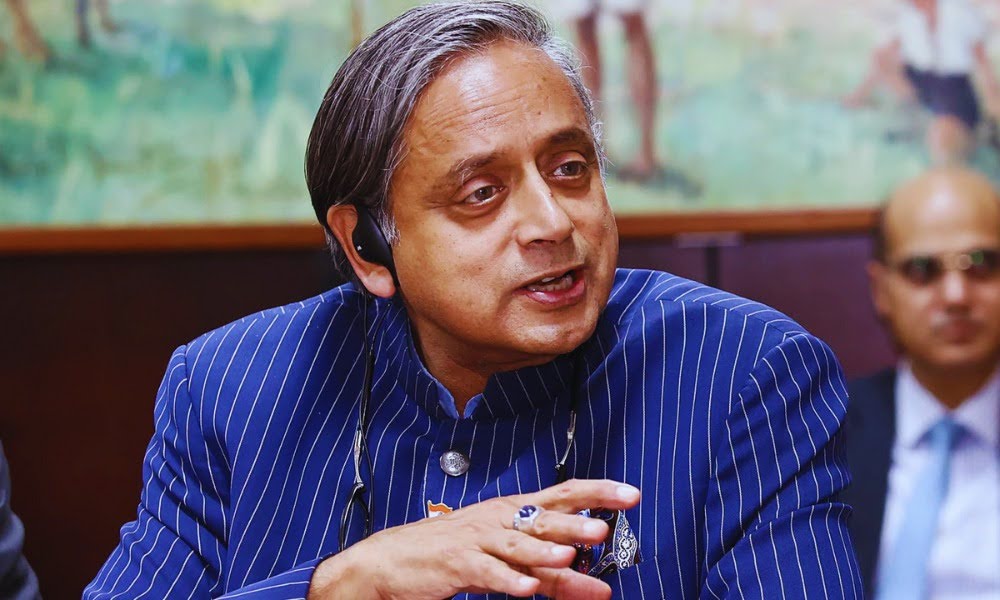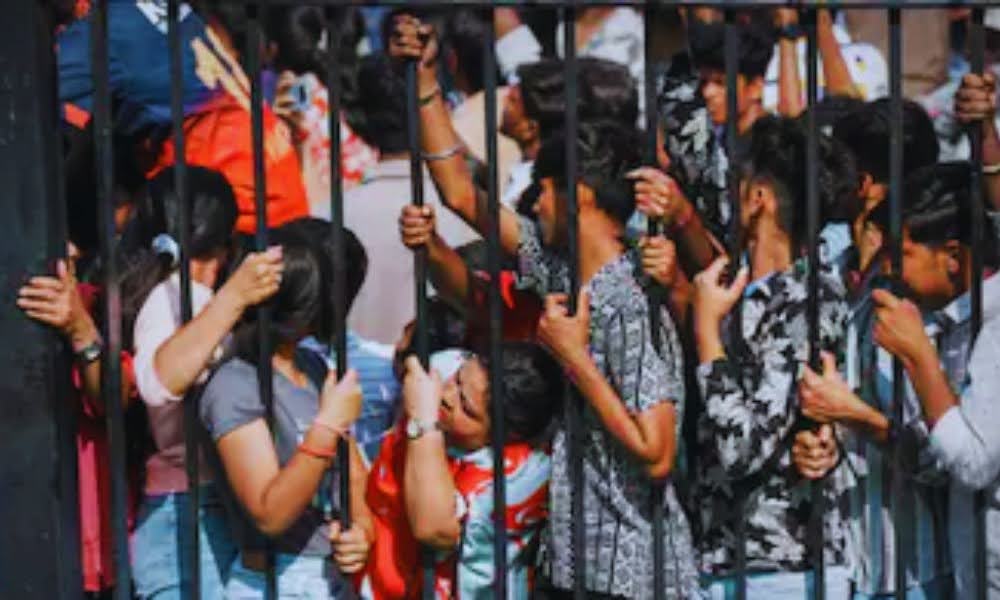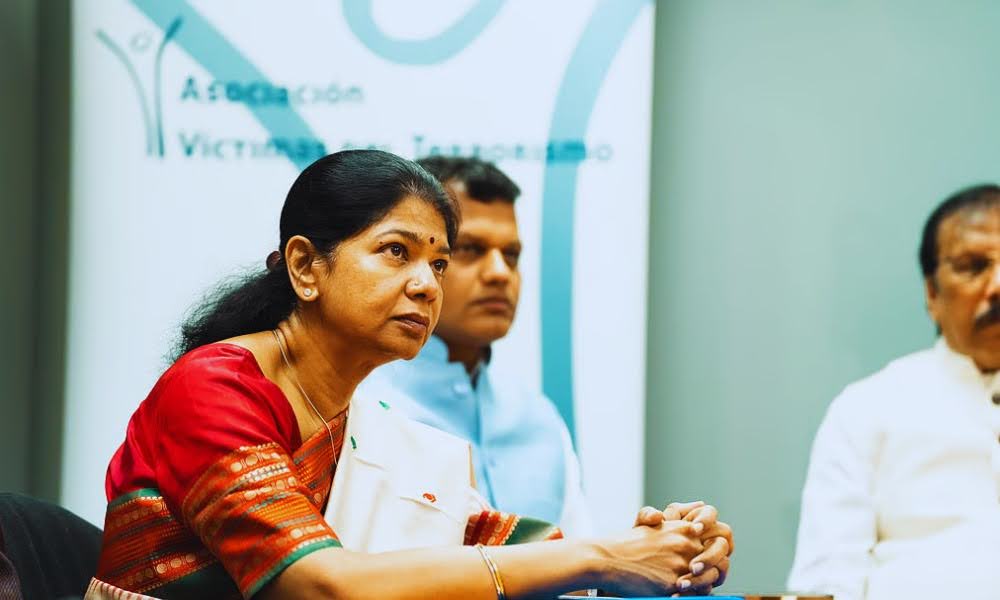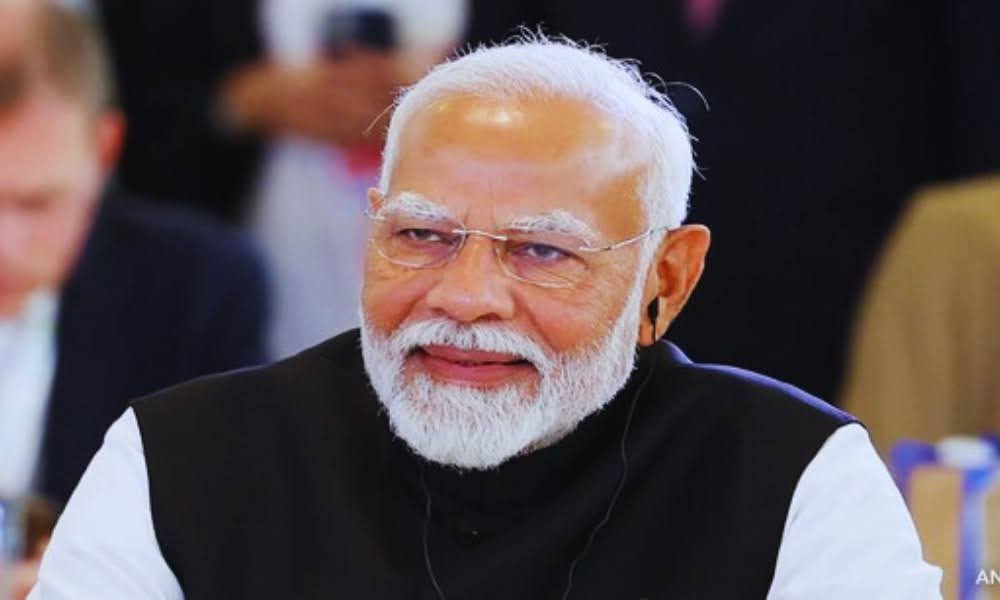Shashi Tharoor Slams Pakistan Over Terror Links During U.S. Visit, Cites Hillary Clinton’s ‘Breeding Vipers’ Warning

Congress MP Shashi Tharoor strongly criticised Pakistan’s record on terrorism during a diplomatic visit to the United States, invoking former US Secretary of State Hillary Clinton’s well-known remark about “breeding vipers” to underscore the dangers of Islamabad’s support for terror groups.
Tharoor is currently leading a multi-party Indian delegation in the US, coinciding with a visit by a Pakistani delegation led by former foreign minister Bilawal Bhutto-Zardari.
Both delegations are engaging with lawmakers and international leaders to promote their respective national positions, particularly in light of recent tensions following the April 22 Pahalgam terror attack.
Tharoor’s Response to Pakistan’s Claims
Addressing claims made by the Pakistani delegation that their country is also a victim of terrorism, Tharoor countered during an address at the Indian embassy in Washington: “This (Pakistan) delegation is going around saying we are also victims of terrorism, we have lost more lives to terrorism than India has. We turn around and say—whose fault is that?”
He continued by quoting Hillary Clinton: “As Hillary Clinton famously said 10 years ago, ‘You can’t breed vipers in your backyard and expect them to bite only your neighbours.’”
Tharoor went on to point out that Pakistan is now facing the consequences of its own policies, referring to the threat from Tehrik-i-Taliban Pakistan (TTP).
“But who created the Taliban from which the Tehrik-i-Taliban broke off?” he asked. “We all know the answer to that, so let Pakistan look inside it and let it do some serious interior reflection before it goes around pleading innocence and deniability and everything else.”
Focus on Terrorism, Not Bilateral Conflict
The Pakistani delegation has claimed that India is the aggressor and that Pakistan too suffers from terrorism. Tharoor, however, stressed that the Indian delegation was not there to present an “India versus Pakistan” narrative.
“It’s about India as a democracy facing terror and as a country that has been focused on its own economic development and growth story. Even Kashmir was a story of prosperity and a booming economy,” he stated.
He cited tourism in Jammu and Kashmir as an indicator of normalcy and development, adding, “I told the Americans we had more tourists in Kashmir last year than Aspen, Colorado receives. We had a 100 per cent increase in the first three months of this year compared to the first three months of last year.”
Pahalgam Attack and Religious Provocation
Referring to the brutality of the Pahalgam attack, Tharoor highlighted how terrorists attempted to incite communal violence.
“Why do they go around asking people their religion and shooting them? When one horrified wife screamed, ‘kill me too’, they said go back and tell them. They wanted a communal backlash.”
India launched Operation Sindoor on May 7 in retaliation, targeting terrorist infrastructure across Pakistan and Pakistan-occupied Kashmir.
Over 100 militants affiliated with groups like Jaish-e-Mohammed and Lashkar-e-Taiba were reportedly killed. The hostilities concluded on May 10 following a mutual ceasefire agreement.
Clarifying India’s Stand
Tharoor refuted accusations that India’s actions were religiously motivated. “When Operation Sindoor was conducted, of the three briefers, two were women and one was a Muslim woman officer. None of our delegations is without at least one Muslim member,” he said.
“This is about terrorism. It’s not about religion, it’s not about communal issues, it’s not about bilateral India.”
Expanding Global Outreach
India’s delegation, which includes leaders across party lines such as BJP’s Bhubaneshwar Kalita, Shiv Sena’s Milind Deora, and former Indian Ambassador to the US Taranjit Singh Sandhu, has visited several countries including Guyana, Panama, Colombia, and Brazil before arriving in the US.
The outreach is part of India’s effort to present its narrative globally following the Pahalgam attack.
While addressing the diaspora media and attending events at the National Press Club and Indian ambassador’s residence, Tharoor emphasised the need to share India’s message through all available channels.
“The message must be spread as widely as possible — through media, diaspora, and direct government outreach,” he said.
Though he expressed sympathy for Bilawal Bhutto, Tharoor was critical of Pakistan’s approach.
“Indeed, I know that Bilawal Bhutto’s mother was killed and one sympathise with the young man for the loss of his mother to terrorism,” he noted.
But he dismissed Pakistan’s diplomatic statements: “They can come with their narratives… But anybody who has followed this issue beyond official headlines will have absolutely no doubt as to what the Pakistani denials are worth — which is not very much.”
Mocking Pakistan’s Strategy
In a comment that caught the attention of some US officials, Tharoor made a sarcastic remark about Pakistan’s geopolitical reliance on China: “Chinese kill chain couldn’t…” — appearing to criticise Islamabad’s growing dependency on Beijing.
He also addressed Pakistan’s request for international mediation and its bid to revive the Indus Waters Treaty, which India suspended on April 23 after the Pahalgam attack.
Earlier in Colombia, Tharoor had said, “The time for acting on the basis of goodwill unilaterally is frankly no longer with us.”
Tharoor ended by distinguishing between Pakistan’s people and its state. “We sympathise with victims of terror wherever they may be.
I remember Parliament once passed a resolution condemning a terrorist attack that killed 40 schoolchildren in Pakistan. But it’s very difficult to sympathise with the Pakistani authorities who have unfortunately created this phenomenon.”








